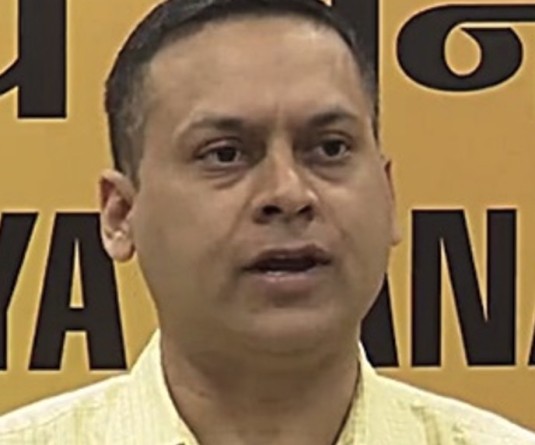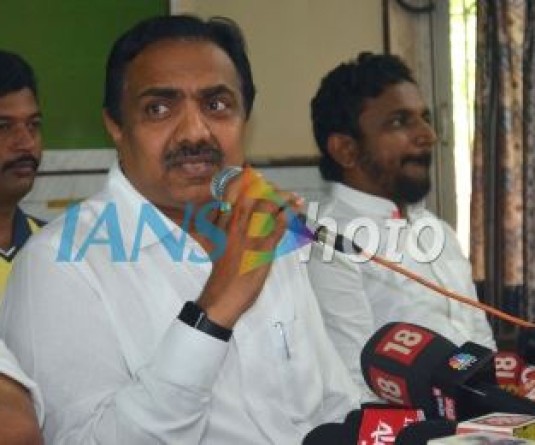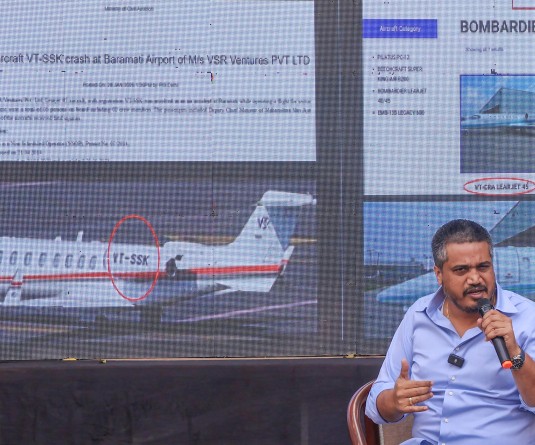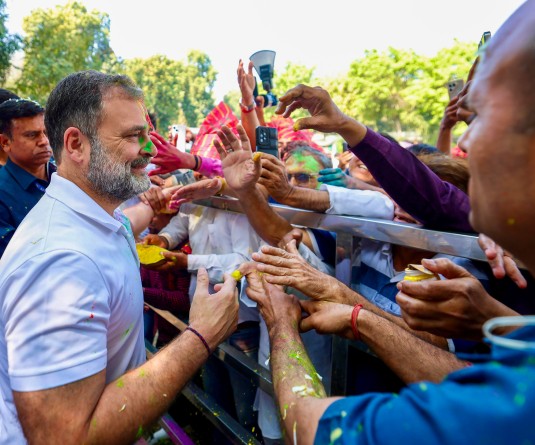The Prime Minister, Shri Narendra Modi launches the Interactive Light and Sound Show of Rabindra Setu, in Kolkata on January 11, 2020. The Governor of West Bengal, Shri Jagdeep Dhankhar, the Chief Minister of West Bengal, Ms. Mamata Banerjee and the
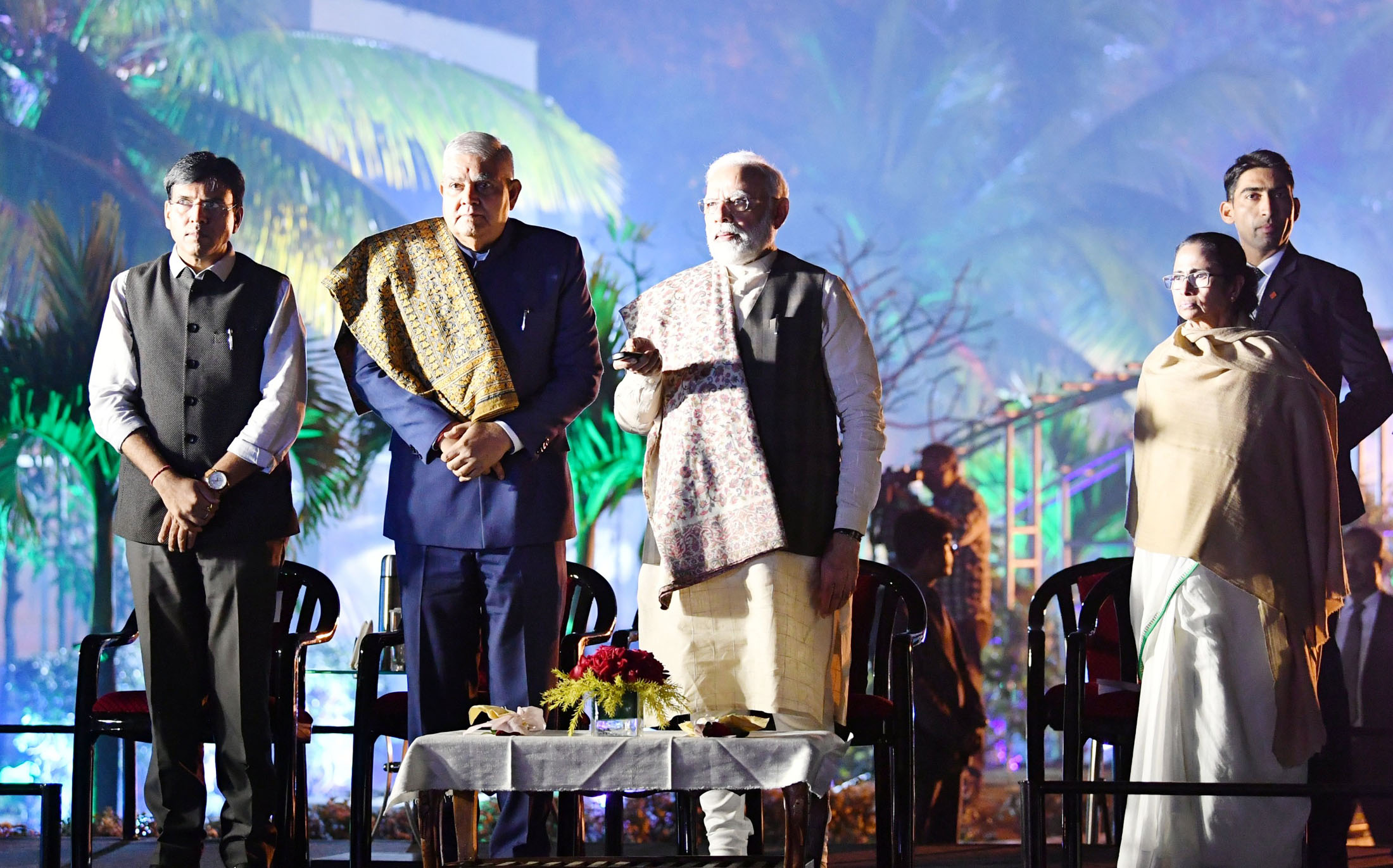
The Prime Minister, Narendra Modi launches the Interactive Light and Sound Show of Rabindra Setu, in Kolkata on January 11, 2020. The Governor of West Bengal, Jagdeep Dhankhar, the Chief Minister of West Bengal, Mamata Banerjee and the Minister of State for Shipping (Independent Charge) and Chemicals & Fertilizers, Shri Mansukh L. Mandaviya are also seen. (PIB Photo)
Kolkata, January 11 (IANS) Regretting that salient chapters in Indian history have not found place in the way the subject has been dealt with during the British rule and even after independence, Prime Minister Narendra Modi on Saturday said there is no reference to what the common people were doing in different periods.
"It is very unfortunate that during British rule and even after independence the drafting of the country's history ignored some salient chapters of our history. The history we read has no reference to what the common Indian people were doing during different times. Didn't they have any existence?" Modi asked after dedicating four renovated heritage buildings to the nation.
The Prime Minister said lot of things connect to Indian history have remained in the wilderness, while some writers have confined it to mere tales of power struggle, violence and battles of succession.
"Lot of things connected to India's history have remained in the wilderness. If you look at our history and tradition, you will find some people have confined our history to power struggle, violence and succession battles," he said.
Modi said it was very important to keep the spirit of national consciousness alive and carry it to the coming generations in those periods of instability and amidst the environment of violence.
"Decade after decade, century after century, who did this job? Our arts, literature and music, our intellectuals, saints and philosophers carried out this job," he said addressing the gathering at the Old Currency Building.
He said the influence of saints and intellectuals could be found in every field of India.
"These individuals, their ideals, and various manifestations of arts and literature, enriched our history in their own way. You know how great people led the biggest social reforms in India," he said.
Describing politics and military power as temporary, the Prime Minister said on the contrary, popular ideas expressed through arts and culture are permanent.
"So it is very crucial for India and Indians to preserve and maintain our own rich history and heritage, because that ir what sets us apart from other nations."
Modi said one can learn something or the other from every culture in the world.
"But we have to keep in mind that it doesn't cast a shadow over Indian culture," he said.
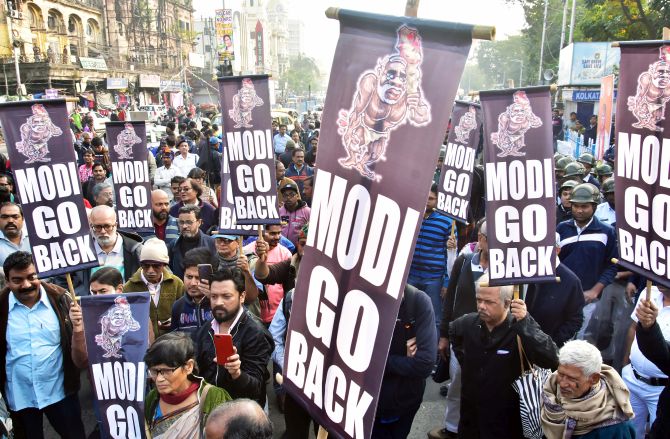
Anti-CAA protests welcome Modi in Kolkata
Kolkata, Jan 11 (IANS) Amid swirling "go back" protests across the city against him, Prime Minister Narendra Modi on Saturday arrived here under heavy security protection for a two-day trip to West Bengal during which he would take part in a number of public programmes in the city and also visit Belur Math in neighbouring Howrah district.
The protestors, sans any political banners but holding aloft the tri-colour and black cloth, filled up the streets in various parts of the city, as they shouted slogans against the Citizenship (Amendment) Act (CAA), the National Register of Citizens (NRC) and the National Population Register (NPR).
The decibel levels increased, as their numbers swelled by the minute, giving tough times to the huge number of police personnel deployed across the city including all vantage points related to the Prime Minister's visit.
At the forefront were thousands of Leftist students, with members of Congress' students wing Chhatra Parishad also joining in at various points - but none of them carried their party flags.
But more significantly, there were thousands of others, women, senior citizens -- some of them even in their 80s -- who laid siege on the city roads, and across the route of Modi's itinerary. Many were agitated over the government on Friday night announcing that the contentious CAA had come into force.
The Prime Minister arrived at the NSCBI airport by an Indian Air Force aircraft at 3-20 PM, when a large number of protestors -- mainly owing allegiance to the Left and the Congress -- had gathered before two entry gates of the terminal, as a huge posse of personnel had a trying time in keeping the situation under control.
Not wanting to take any chances, the Special Protection Group in-charge of the Prime Minister's security, and the police personnel opted to fly Modi by an IANF helicopter to the Race Course Maidan.
Meanwhile, the protests intensified outside the airport, as the assembled crowd repeatedly tried to break the police cordon, and after sometime the VIP Road -- considered the gateway to the city -- had to be closed to traffic following scuffles between police and the protestors.
Similar protests were seen near the Race Course, where Modi's helicopter landed from the airport.
Hundreds of protestors stood close to the Second Hooghly Bridge, armed with posters and banners, but failed to come close to the Race Course as the entire area was thrown under security rings of police and SPG.
At Hastings, the protestors climbed on to the Second Hooghly Bridge and frantically waved black clothes from a distance as Modi's chopper started disembarking.
The centre of the city -- Dharamtala -- saw a sea of protestors, whose rising numbers led to the shut down of all roads in the vicinity, with traffic coming to a standstill. All along the stretch, the only refrain through posters, banners, hoardings and slogans was "No NRC, No CAA, go back Modi".
There were people from different walks of life - jeans clad youth to the aged in dhotis, girls in tops, to widows in white sarees. Many of them held banners that read: "See, we are all Indian citizens".
Some of the protestors enthusiastically wrote on the streets: "we are Indians. Go back Modi".
Women also demonstrated, saying "we don't accept CAA".
The protests had erupted hours before the Prime Minister's arrival, as student arms of various Left parties, including the CPI-M affiliated Students Federation of India (SFI) held large gatherings in five points of the city -- Golpark and Jadavpur 8B bus stand in South Kolkata, Esplanade in central Kolkata and Hatibagan as also the metropolis' education hub College street in North Kolkata, displaying posters and banners ridiculing the Prime Minister.
Coming together under the banner "Students Against Fascism", the protestors, joined by those of the Congress-affiliated Chhattra Parishad, held aloft the tri-colour and publicly read the Preamble to the Constitution as they staged demonstrations in each of the venues.
The CAA grants citizenship to six non-Muslim communities -- Hindu, Sikh, Buddhist, Jain, Parsi and Christian -- who have come to India from Pakistan, Bangladesh and Afghanistan till December 31, 2014 after facing religious persecution.


